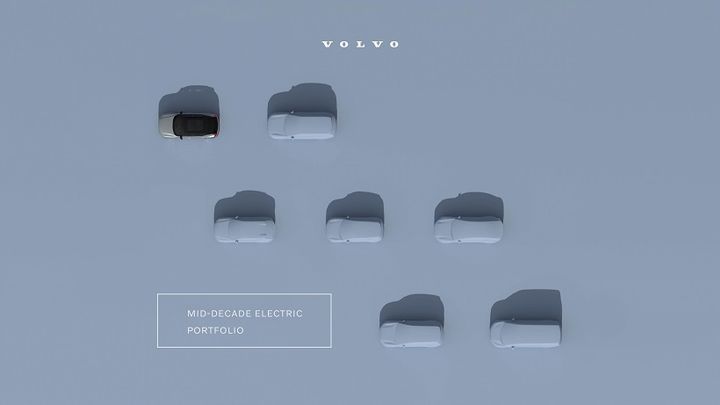Photo: Volvo
The automaker’s decision builds on the expectation that legislation as well as a rapid expansion of accessible high quality charging infrastructure will accelerate consumer acceptance of fully electric cars.
Volvo Cars said it plans to become a fully electric car company by 2030, and intends to only sell EVs and phase out any car in its global portfolio with an internal combustion engine, including hybrids, the automaker said.
The company’s transition toward becoming a fully electric car maker is part of its ambitious climate plan, which seeks to consistently reduce the life cycle carbon footprint per car, Volvo said. Its decision also builds on the expectation that legislation as well as a rapid expansion of accessible high quality charging infrastructure will accelerate consumer acceptance of fully electric cars.
Volvo Cars’ move towards full electrification comes together with an increased focus on online sales and a more complete, attractive and transparent consumer offer under the name Care by Volvo. All fully electric models will be available online only.
“To remain successful, we need profitable growth. So instead of investing in a shrinking business, we choose to invest in the future – electric and online,” said Håkan Samuelsson, chief executive. “We are fully focused on becoming a leader in the fast-growing premium electric segment.”
Volvo Cars launched its first fully electric car, the XC40 Recharge, in markets around the globe last year. Later today the company will reveal its second fully electric car, a new model in the 40 Series, Volvo said.
In coming years Volvo Cars will roll out several additional electric models, with more to follow. Already by 2025, it aims for 50% of its global sales to consist of fully electric cars, with the rest hybrids. By 2030, every car it sells will be fully electric.
“There is no long-term future for cars with an internal combustion engine,” said Henrik Green, chief technology officer. “We are firmly committed to becoming an electric-only car maker and the transition should happen by 2030. It will allow us to meet the expectations of our customers and be a part of the solution when it comes to fighting climate change.”
Source: https://www.automotive-fleet.com
CUT COTS OF THE FLEET WITH OUR AUDIT PROGRAM
The audit is a key tool to know the overall status and provide the analysis, the assessment, the advice, the suggestions and the actions to take in order to cut costs and increase the efficiency and efficacy of the fleet. We propose the following fleet management audit.




